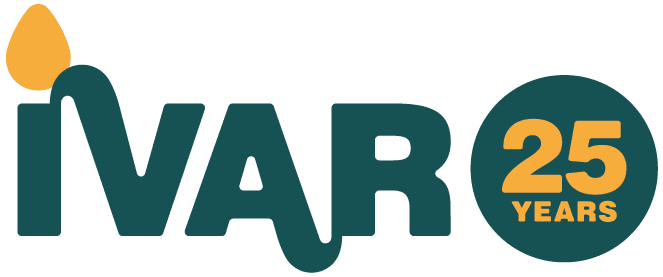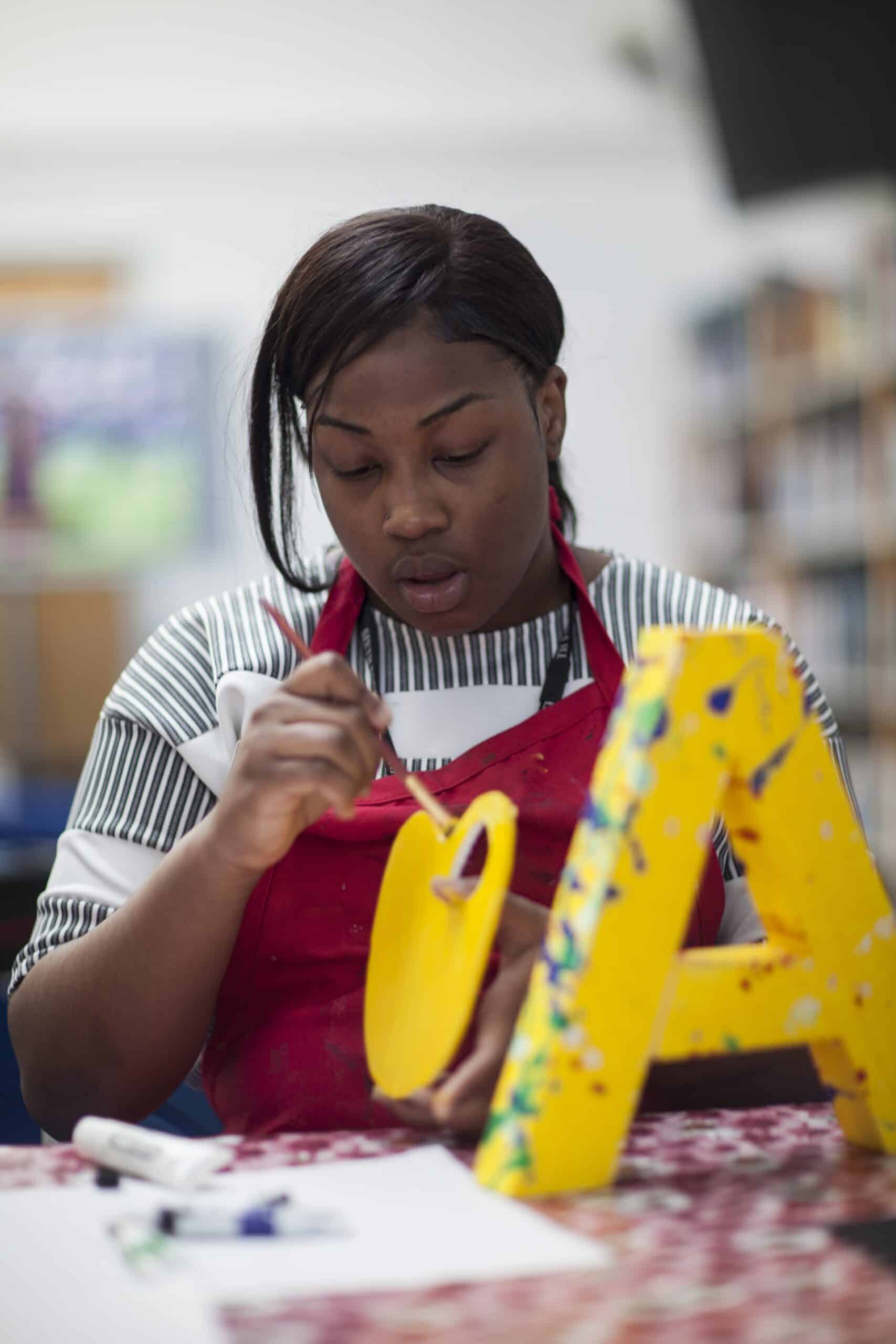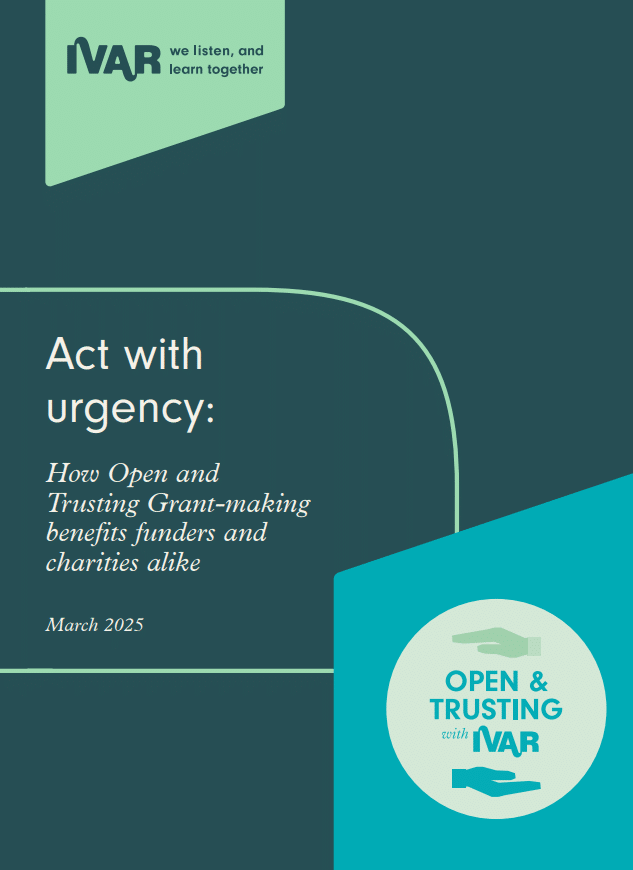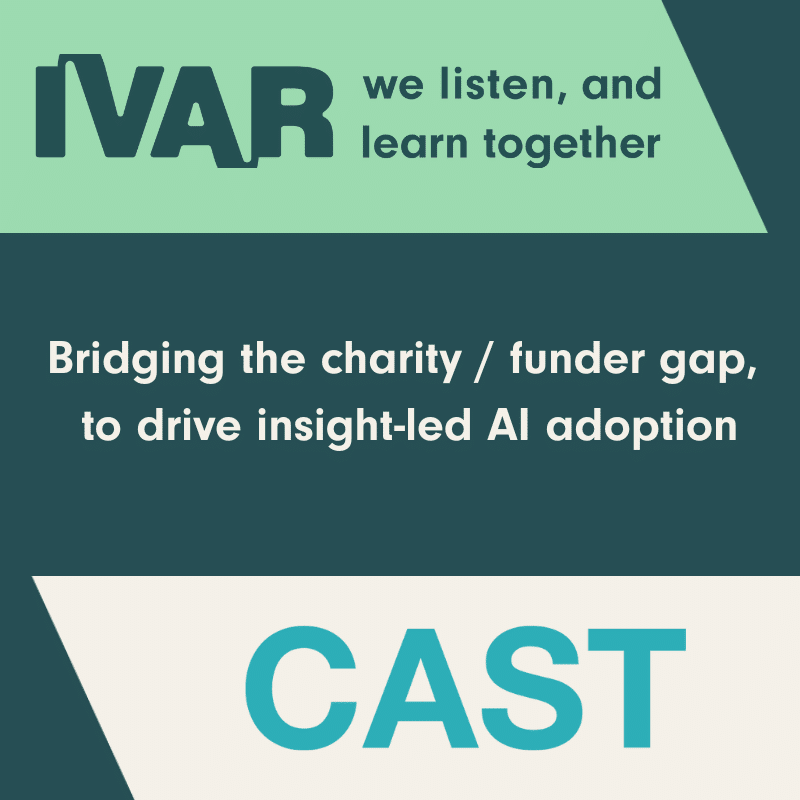Open and Trusting grant-making is grounded in patience, empathy and kindness. At its heart is a recognition that charities are powered by people – passionate, committed, and deeply rooted in the communities they serve.
So how could generative artificial intelligence (AI) possibly help with this approach?
As interest in the use of AI grows, we’ve been exploring: What does a human-centred approach to technology look like in practice? And how might it further – or undermine – the spirit of Open and Trusting?
Over the last six months we have been collaborating with CAST through The AI Exchange to strengthen the lines of communication between funders and charities exploring the adoption of AI. We’ve seen exciting experiments, from automating eligibility checks to rethinking reporting.
This article shares some of the ways in which funders can and are using AI to simplify their grant-making practices while also making progress on their eight Open and Trusting commitments. We also provide some reflective questions to guide you in your implementation of AI to ensure that the adoption of this new technology doesn’t undermine a human-centred approach.
The eight commitments and AI
AI isn’t a silver bullet – and it comes with risks of its own, from deepening exclusion to diluting relationships. But when used thoughtfully, when designed in conversation with grantees and shaped by their priorities, it may offer new ways to reduce friction in funding processes and free up time for what matters most.
Here’s how each of the eight commitments could intersect with AI.
Don’t waste time
Charities shouldn’t lose hours chasing funding they’ll never qualify for. AI can step in here. Before they even start an application, a simple chatbot on a funder’s website could walk applicants through eligibility checks. That frees up charities to focus on the right opportunities and saves funders time too.
A prompt for reflection: How could AI reduce the time charities spend just figuring out if they qualify for your funding?
Ask relevant questions
Application forms are often crammed with questions that repeat information charities have already published elsewhere. AI can pull data from public records, reports, or websites, cutting down the form length dramatically. This needs to be set up responsibly to ensure the veracity of the information but it could mean less duplication and more focus on what really matters.
A prompt for reflection: How might AI gather public information so you only ask charities for what truly needs their input?
Accept risk
Risk is part of funding, but funders often struggle to see how it plays out until much later. AI could analyse data across grants to spot patterns, helping funders understand which risks matter to them and which don’t. It could even help funders think about more proportionate due diligence.
A prompt for reflection: Where could AI help you see risk more clearly—without adding more hoops for applicants?
Act with urgency
Charities often need funding quickly, but assessment processes can drag on. AI can speed up reviews and even assist with due diligence checks, cutting turnaround times. Faster processes mean quicker answers and, ideally, more timely support.
A prompt for reflection: How can AI help you deliver faster decisions while still giving applicants meaningful feedback?
Be open
Transparency builds trust, and AI can support that. Think about tools that summarise committee meetings or generate clear feedback reports so applicants aren’t left guessing. AI could also help you explain your own use of technology to grantees, showing you’ve got nothing to hide.
A prompt for reflection: How will you communicate both your expectations of applicants and your own use of AI?
Enable flexibility
AI tools won’t automatically make funders flexible, but they can help charities become more effective in their own work. Supporting grantees with funding to explore or adopt AI could strengthen applications, delivery, and long-term impact. Flexibility here means resourcing them to make the most of the technology.
A prompt for reflection: How might you back charities on their AI journeys so the digital divide doesn’t widen?
Communicate with purpose
Conversations with grantees matter, but documenting them often turns into admin overload. AI can take notes, summarise meetings, and keep a record without pulling staff away from the human side of the relationship. That means more focus on dialogue, less on paperwork.
A prompt for reflection: How could AI help you strengthen communication without creating more reporting burdens?
Be proportionate
Reporting is necessary, but it shouldn’t be an endless drain. AI can scan annual reports or summarise conversations, pulling out the key information funders need. That way, charities don’t have to produce bespoke documents just to answer questions about what matters to you and your strategy.
A prompt for reflection: Where could AI extract the essentials so you ask charities for less additional reporting?
The potential of AI is not in replacing human connection, but in creating space for it. As funders explore new technologies, the guiding question might be: Does this help us build stronger, more respectful, more equitable relationships with the people and organisations we fund? If funders let AI handle the heavy admin and keep the human parts human, the sector can change at the pace charities are asking for.




